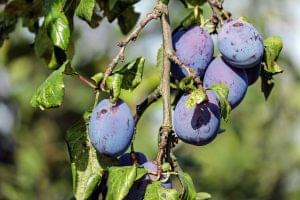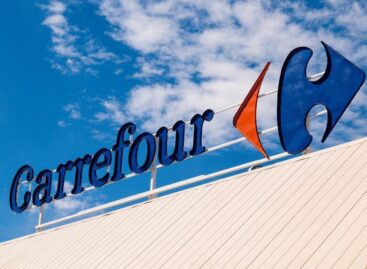Polish and Serbian fruit growers do not want to leave plums on the trees
Due to low fruit prices, fruit growers are faced with a dilemma: should they continue harvesting or should they stop? It is easy to say that this should be done, it is much more difficult to take such radical steps…

If the plums are not picked, it can even increase the risk of the trees getting sick. (Photo: Pixabay)
Growers are often advised to leave fruit on the trees if they are not satisfied with the price. On the one hand, it seems logical, and on the other hand, every fruit producer wants to achieve that at least part of the costs related to production are recouped. However, giving up the harvest means zero income regardless of country and currency.
The harvest in Serbia is entering its peak period, that is, the time for picking the Stanley variety. Supply increases and purchase prices decrease. Fruits to be exported to Germany are bought at a price of 35 dinars, i.e. PLN 1.40/kg. Despite this, fruit growers continue to harvest and sell it. In Poland, prices are even lower, yet it is difficult to find a fruit grower who has stopped harvesting plums. In the producer groups of the Grójec Basin, the most common purchase price is PLN 1.20/kg. However, such significant price drops that we have witnessed have not fully reflected the market. Plums in supermarkets still cost PLN 5-7 per kilogram.
As every year, after the Cacanska Lepotica variety has matured, prices will probably rise slightly. Last year’s price increase occurred around mid-August. At that time, prices rose from 1.20 to 1.40 PLN/kg. Currently, Lepotica is still being harvested, but the peak of ripening of the variety has already passed.
Related news
Carrefour Expands No-Lo Offer In Poland, Adds Insurance In Spain
🎧 Hallgasd a cikket: Lejátszás Szünet Folytatás Leállítás Nyelv: Auto…
Read more >Serbia Aims To Attract Foreign Retailers To Curb High Prices
🎧 Hallgasd a cikket: Lejátszás Szünet Folytatás Leállítás Nyelv: Auto…
Read more >Related news
MOHU: 5,200 return points are in operation, but 47 larger settlements still do not have RE points – public “enema” machines may be introduced
🎧 Hallgasd a cikket: Lejátszás Szünet Folytatás Leállítás Nyelv: Auto…
Read more >








